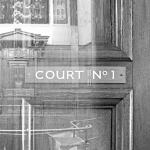Recovering outstanding debts can be one of the most challenging aspects of running a business or managing collections. Despite a business’s best efforts to maintain smooth operations and establish clear payment terms, late or unpaid invoices are a recurring issue. For businesses and debt collection agencies alike, finding effective ways to recover debts efficiently is critical to maintaining financial stability and avoiding prolonged cash flow problems.
One highly effective method of debt enforcement in England and Wales is through High Court Enforcement Officers (HCEOs). HCEOs are authorised officers who specialise in enforcing High Court judgments and recovering debts on behalf of claimants. Their role and powers make them an attractive choice for creditors seeking a faster and more effective resolution to debt recovery disputes.
In this article, we’ll explore the benefits of using HCEO enforcement, focusing on why businesses and debt collection agencies should consider this powerful tool as part of their recovery strategy.
Who Are HCEOs, and What Do They Do?
High Court Enforcement Officers are authorised professionals responsible for enforcing judgments made by the High Court. Their authority is derived from the High Court and County Courts Jurisdiction Order 1991, allowing them to act on judgments where the debt exceeds £600 and is not regulated under the Consumer Credit Act 1974.
HCEOs’ primary function is to recover debts owed to creditors. They can seize and sell assets belonging to debtors or negotiate payment arrangements to settle outstanding sums. Unlike County Court bailiffs, HCEOs operate with greater powers and often deliver results more quickly due to their streamlined processes and wider scope of authority.
The Key Benefits of HCEO Enforcement
1. Faster Recovery of Debts
HCEOs are known for their speed and efficiency in recovering debts. When a creditor instructs an HCEO to enforce a judgment, the process moves quickly, often leading to results within weeks.
This expedited process is critical for businesses that need to recover funds urgently to maintain cash flow or reinvest in operations. HCEOs’ ability to act swiftly minimises delays, helping creditors avoid the frustration of prolonged enforcement procedures.
2. Enhanced Authority Compared to County Court Bailiffs
One of the standout advantages of using HCEOs is their enhanced authority. Unlike County Court bailiffs, who are restricted to enforcing County Court judgments, HCEOs can enforce both High Court and County Court judgments (if the debt meets the criteria for transfer to the High Court).
Their authority allows them to take stronger action, including seizing high-value assets, which increases the likelihood of successful debt recovery. For creditors dealing with resistant debtors, HCEOs provide a much-needed edge.
3. Incentivised to Deliver Results
HCEOs work on a fee structure that incentivises successful outcomes. In most cases, their fees are recoverable from the debtor, meaning the creditor incurs minimal costs if the enforcement is successful.
This financial structure ensures that HCEOs are motivated to recover debts efficiently, aligning their interests with those of the creditor. For businesses and debt collection agencies, this makes HCEOs a cost-effective and results-driven option.
4. Seizure of High-Value Assets
One of the most impactful tools in an HCEO’s arsenal is the ability to seize and sell assets to recover outstanding debts. These assets can include vehicles, machinery, and other valuable items belonging to the debtor.
The prospect of losing significant assets often prompts debtors to settle their debts quickly, reducing the need for prolonged enforcement action. For creditors, this ability to exert pressure is a critical advantage when dealing with uncooperative debtors.
5. Professional and Experienced Teams
HCEOs and their teams are highly trained professionals who understand the complexities of enforcement. They operate with a strong emphasis on compliance, ensuring that their actions adhere to the law while maintaining professionalism throughout the process.
This expertise is invaluable in sensitive cases where the debtor may be hostile or difficult to engage. HCEOs’ professionalism and experience give creditors confidence that their cases are being handled effectively and lawfully.
6. National Coverage
HCEOs provide nationwide coverage, allowing them to enforce judgments regardless of where the debtor is located in England or Wales. For businesses that operate across multiple regions, this nationwide reach ensures that enforcement can be carried out seamlessly, without the need to engage multiple enforcement providers.
The Process of Instructing an HCEO
Using HCEO enforcement typically involves the following steps:
- Obtain a Judgment: The creditor must first secure a County Court or High Court judgment for the debt owed. If the judgment was made in the County Court, it can be transferred to the High Court for enforcement if the debt exceeds £600 and is not regulated under the Consumer Credit Act 1974.
- Apply for a Writ of Control: Once the judgment is transferred to the High Court, a Writ of Control is issued. This legal document authorises the HCEO to take enforcement action against the debtor.
- Enforcement Action: The HCEO will contact the debtor to demand payment. If the debtor fails to comply, the HCEO can seize assets to recover the debt.
- Resolution: The enforcement process typically concludes with the debtor paying the debt in full, agreeing to a payment arrangement, or having their assets sold to cover the outstanding amount.
When to Consider HCEO Enforcement
HCEO enforcement is particularly effective in cases where:
- The debt exceeds £600 and remains unpaid despite previous attempts to recover it.
- The debtor is unresponsive or unwilling to engage in negotiations.
- There are known assets that can be seized to satisfy the debt.
- Speed is a priority for the creditor, and delays in recovery would cause significant financial strain.
Businesses and debt collection agencies should evaluate each case individually to determine whether HCEO enforcement is the best course of action. Consulting with a solicitor experienced in debt recovery can provide valuable guidance in making this decision.
Conclusion: Beyond Faster Debt Recovery
High Court Enforcement Officers offer a powerful solution for businesses and debt collection agencies seeking faster, more effective debt recovery. Their enhanced authority, expertise, and results-driven approach make them an invaluable tool in the fight against unpaid debts.
However, the benefits of HCEO enforcement extend beyond financial recovery. By demonstrating a willingness to pursue debts through professional enforcement, creditors send a clear message that non-payment will not be tolerated. This can act as a deterrent, encouraging better payment practices among customers and clients in the long term.
Looking ahead, businesses should consider how HCEO enforcement fits into their broader debt recovery strategy. Could adopting proactive measures, such as credit checks and robust contracts, complement the use of HCEOs? By combining enforcement with preventative measures, businesses can build a more resilient approach to managing debt. Ultimately, the value of HCEOs lies in their ability to deliver swift, professional results while giving creditors peace of mind. For those facing the challenges of unpaid debts, their role in ensuring justice and financial stability cannot be overstated.


